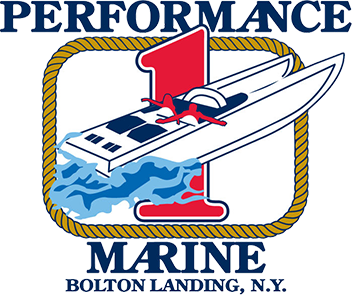When There’s an Emergency, Volunteers Respond – No Matter What the Season
Living on a 32-mile lake, the first responders from communities in the Lake George basin need to be prepared for emergencies regardless of the season. In summer, they’re among the first on the scene whenever there’s a swimming or boating accident. And when the lake freezes over, they’re ready when the call comes through that an ice fisherman is in danger. To be prepared, countless hours of training and drills are required. The North Queensbury Volunteer Fire Company, for example, assembles every Thursday night for drills; in winter, they rehearse for rescues from frozen waters.
On a recent night in February, (when) a National Weather Advisory was warning of extreme, cold temperatures with wind chill factors ranging from 25 to 40 below, North Queensbury Fire Chief Jeff Baertschi organized a session to train for the safe rescue of anyone who might have fallen through the ice into the freezing waters of Lake George.
The first hour was spent in the station, reviewing rescue techniques, the best means of preserving the safety of the responders and procedures when working with the company’s Hover Craft. North Queensbury Rescue Squad Paramedic David Nowak discussed hypothermia. State Forest Ranger Evan Dunigan explained the most efficient use of rescue rope operations on the ice. When the garage doors of the station were lifted, everyone suddenly became very aware of just how cold it was.
This week’s drill was supplemented by volunteers who agreed to act as victims, playing the roles of tourists, ice fishermen or perhaps skaters, out on the lake for an evening adventure.
As the volunteers left the shore, the ice looked solid and safe. The only open water was near docks, protected by ice eaters. Within a minute, after they had walked about a 100 feet, we began to hear their simulated cries of “help!”
 In their cold water exposure suits, members of the Fire company and rescue squads sprang quickly into action, running across the ice toward the voices. Others deployed rescue ropes, lights, basket stretchers and the Hover Craft. Medical personnel prepared to assist the victims. Chief Baertschi reminded the rescuers to follow the proper procedures to avoid becoming victims themselves. These rescue operations require teamwork to be successful.
In their cold water exposure suits, members of the Fire company and rescue squads sprang quickly into action, running across the ice toward the voices. Others deployed rescue ropes, lights, basket stretchers and the Hover Craft. Medical personnel prepared to assist the victims. Chief Baertschi reminded the rescuers to follow the proper procedures to avoid becoming victims themselves. These rescue operations require teamwork to be successful.
The role-playing victims, safe in warm exposure suits which can endure the cold water temperatures for several hours, are brought to shore one by one, some is baskets, some on the department Hover Craft, and evaluated for care, treatment and possible advanced life support by medical personnel, just as if they were real patients.
Although many of the many of the members completed the evening’s drill with ice encrusted on their faces and suits, no one could be heard complaining about the cold, the wind or the sub-zero temperatures. Weekly drills are part of what it takes to learn to respond quickly and effectively to unexpected emergencies, and typical of the commitment that the North Queensbury Volunteer Fire Company and volunteers in every community around the shores of Lake George have made to protect residents and visitors every season of the year.





